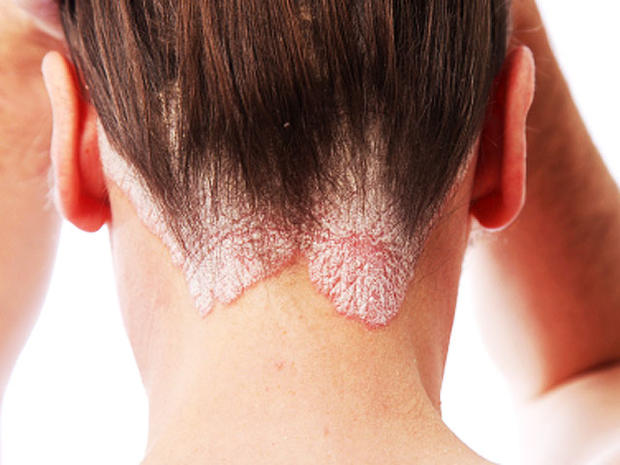Experimental psoriasis drug outperforms traditional treatment: Study
(CBS) Have scientists come up with a better way to treat psoriasis? An experimental drug has been shown to be more effective than a commonly used treatment in a new study, so much so that it might keep psoriasis at bay for good.
PICTURES: Psoriasis: 6 common myths
"This is unheard of," study author Dr. Kristian Reich, professor of dermatology at Georg-August-University in Gottingen, Germany, told WebMD. "We in dermatology have never spoken about remission before. But with this drug, the word 'remission' is on the table."
For the study - published in the Oct. 27 issue of the New England Journal of Medicine - researchers gave more than 300 people with psoriasis either an experimental treatment of briakinumab, or a commonly used drug, methotrexate. Briakinumab reduced psoriasis symptoms by 75 percent in more than 80 percent of the study participants, compared with only 40 percent of people who took methotrexate.
After a year follow-up, nearly 60 percent of participants taking briakinumab had no skin lesions, compared with fewer than 20 percent of participants taking methotrexate.
But the study also found a downside with briakinumab - serious side effects.
Side effects were found in 9 percent of people taking the experimental drug, compared with 6 percent of those who took methotrexate. Cancers also occurred in 2 percent of those taking briakinumab, but experts not involved in the study downplayed that finding.
"Cancer risk is extremely hard to define, and this study was not powered to detect any difference in the risk of developing a malignancy," Dr. Bruce Bebo, director of research and medical programs for the National Psoriasis Foundation, told HealthDay.
Five million Americans have psoriasis. There are five different types of the disease, but over 80 percent of people with psoriasis have plaque-type, characterized by red lesions covered by silvery-white scales on the knees, elbows, scalp, and lower back.
Patients with psoriasis can use medication, creams, specialized shampoos, or phototherapy - exposing the skin to ultraviolet light. Stress is a common trigger of psoriasis, along with diet, medications, cuts, scrapes, and allergies.
The National Psoriasis Foundation has more.

